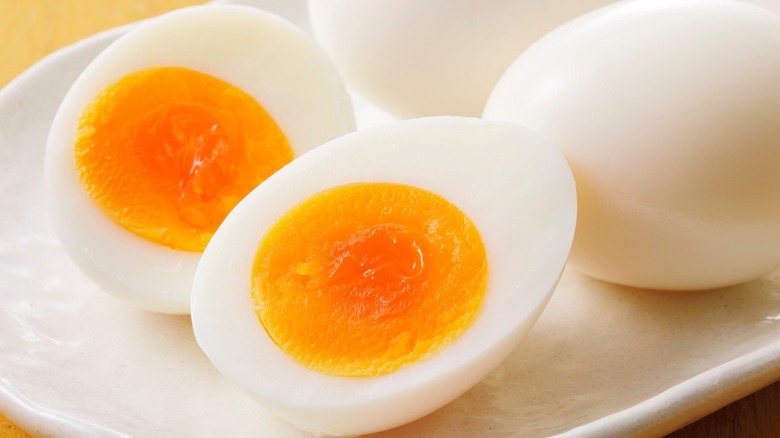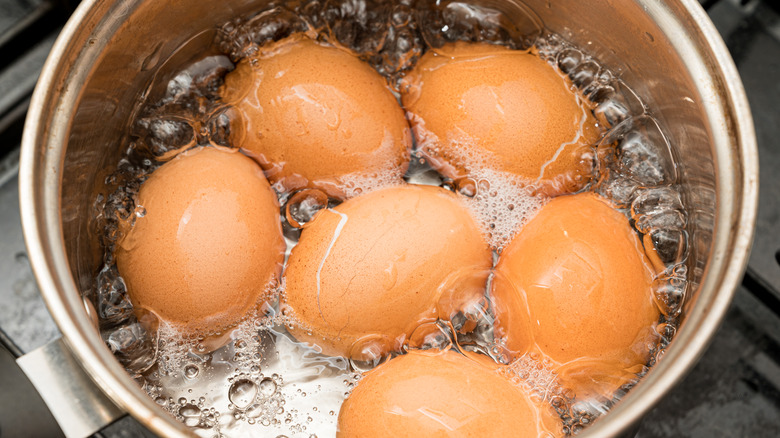The Temperature You Never Want To Top While Cooking Soft-Boiled Eggs
Anyone who likes eggs at breakfast has their preferred method of preparing them. According to a 2019 YouGov survey, the most popular way to eat eggs in the United States is scrambled, followed by over easy, sunny side up, and over medium. However, in Britain, another style came in at a close second to scrambled in 2021: soft-boiled (via Egg Info). If you've never had soft-boiled eggs, they're similar to hard-boiled eggs in that the egg white is nice and firm. However, the difference lies in the yolk. While hard-boiled eggs feature a solid center, soft-boiled eggs have a runny yolk that adds texture and flavor.
Making soft-boiled eggs at home is easy — all you need are a pot of water, a stove, and some eggs. But it requires some finesse and attention to detail. Not only do you have to monitor the amount of time your eggs are boiling, but you also have to pay attention to the temperature at which they're cooking. Here's the maximum heat you should use for your eggs if you want to maintain that ideal egg white and yolk consistency.
For the best results, don't bring the water to a boil
Like with most foods, the temperature at which you cook soft-boiled eggs can make a huge difference in how they turn out. If you boil them at too high of a temperature, you could end up with inedible eggs. If the temperature of the egg white goes over 180 degrees Fahrenheit, you'll end up with " tough, dry, and rubbery" eggs, Serious Eats consultant. Kenji López-Alt explained in an article. If you want a shot at tender eggs, you can't overcook them.
To achieve this, you'll want to keep your water temperature to 190°F (88°C). Serious Eats and other sites also recommend using eggs straight out of the refrigerator to keep the yolk nice and soft while allowing the whites to set properly. Note that the size of the eggs themselves can also impact how runny your yolk is or how firm your egg whites end up. The trained chef behind the Once Upon a Chef blog says that while large eggs may take six or so minutes, you might want to increase the time by a minute for bigger eggs or decrease it by a minute for smaller ones.

